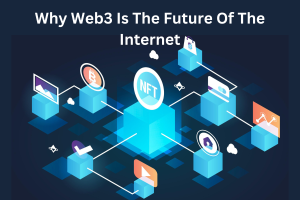Web3 marketing is a new marketing approach that leverages the power of blockchain technology and cryptocurrencies. It is the third generation of the internet, which aims to make the internet more decentralized, accessible, private, and secure for users. Web3 marketing is a disruptive force that is changing the way businesses market their products and services online.
Web3 marketing is different from traditional marketing in many ways. In Web3 marketing, content creators have complete ownership and control over their content and its profits. This means that marketers need to shift their focus from advertising on centralized platforms like Facebook and Google to decentralized platforms that use blockchain technology. Web3 marketing also requires a deep understanding of cryptocurrencies, smart contracts, and NFTs (non-fungible tokens), which are becoming increasingly popular in the Web3 ecosystem.
As Web3 technology continues to evolve, it is becoming clear that Web3 marketing is the future of online marketing. In this article, we will explore the basics of Web3 marketing and what you need to know to stay ahead of the curve. We will discuss the key components of Web3 marketing, including consumer marketing, content marketing, product marketing, and SEO, and how they differ from traditional marketing. We will also look at the benefits and challenges of Web3 marketing and provide tips and strategies for businesses looking to capitalize on this emerging trend.
What is Web3 Marketing?
Web3 marketing is a new evolution in digital marketing that is gaining popularity due to the increasing use of blockchain technology. It accompanies a shift from Web 2.0’s centralized data storage to Web 3.0’s decentralized data storage, which is intended to give control of data to users. Web3 marketing is essentially the use of blockchain technology in marketing strategies.
Web3 marketing is built on the concept of a more decentralized web that places the power in the hands of users instead of large tech companies like Google, Amazon, and Netflix. It is designed to make the internet more accessible, private, and secure for users.
The goal of Web3 marketing is to create a more transparent and equitable digital ecosystem, where users have more control over their data and can benefit from it directly. This means that Web3 marketing is more focused on building relationships with users rather than just selling products or services.
Benefits of Web3 Marketing
Web3 marketing offers several benefits that can help businesses acquire and retain customers more efficiently and effectively. In this section, we will discuss the key benefits of Web3 marketing and how they can impact your marketing strategy.
Decentralization
Web3 marketing is built on decentralized technologies such as blockchain, which eliminates the need for intermediaries and third-party platforms. This means that businesses can interact directly with their customers and vice versa, without the need for intermediaries such as social media platforms or search engines. Decentralization also allows for greater control over data, as users can control how their data is used and who has access to it.
Transparency
Web3 marketing is transparent, as all transactions and interactions are recorded on a public ledger. This means that businesses can track and analyze customer behavior and preferences in real time, which can help them make more informed marketing decisions. Additionally, customers can see how their data is being used and by whom, which can help build trust and loyalty.
Trust
Web3 marketing is built on trust, as transactions and interactions are secured through cryptography and decentralized consensus mechanisms. This means that businesses can build trust with their customers by providing secure and transparent transactions, which can help increase customer loyalty and retention.
Security
Web3 marketing is more secure than traditional marketing methods, as it uses decentralized technologies that are resistant to hacking and cyber-attacks. Additionally, Web3 marketing is more resistant to fraud and scams, as all transactions are recorded on a public ledger and can be easily traced and verified. In summary, Web3 marketing offers several benefits that can help businesses acquire and retain customers more efficiently and effectively. Decentralization, transparency, trust, and security are just a few of the key benefits of Web3 marketing that businesses should consider when developing their marketing strategies.
Web3 Marketing Strategies
Engaging with Web3 Communities
Web3 communities are built around a shared interest in blockchain technology and decentralized systems. Engaging with these communities is a powerful way to build brand awareness and loyalty. One way to engage with these communities is to participate in online forums and social media groups. Another way is to host events or sponsor hackathons that bring together members of the community. By engaging with these communities, businesses can build trust and credibility while also gaining valuable insights into the needs and preferences of their target audience.
Leveraging Blockchain Technology
Blockchain technology is at the heart of Web3, and businesses can leverage this technology to build trust and transparency with their customers. One way to do this is to use blockchain to track the provenance of products and ensure that they are ethically sourced. Another way is to use blockchain to create secure, tamper-proof records of transactions. By leveraging blockchain technology, businesses can differentiate themselves from their competitors and build a reputation for trustworthiness and integrity.
Using NFTs for Marketing
NFTs, or non-fungible tokens, are unique digital assets that can be bought and sold on blockchain platforms. Businesses can use NFTs for marketing by creating limited-edition digital assets that are only available to a select group of customers. For example, a fashion brand might create an NFT that gives the holder exclusive access to a new collection. By using NFTs for marketing, businesses can create a sense of exclusivity and scarcity that can drive demand and increase brand loyalty.
Partnering with Web3 Influencers
Web3 influencers are individuals who have built a following around their expertise in blockchain technology and decentralized systems. By partnering with these influencers, businesses can tap into their audience and gain exposure to new customers. One way to partner with Web3 influencers is to sponsor their content or events. Another way is to collaborate with them on product launches or marketing campaigns. By partnering with Web3 influencers, businesses can build credibility and cost-effectively reach new audiences.
Challenges of Web3 Marketing
Lack of Standardization
One of the biggest challenges of Web3 marketing is the lack of standardization. Unlike traditional marketing channels, there are no universally accepted standards or best practices for Web3 marketing. This makes it difficult for marketers to know where to focus their efforts and how to measure their success.
Furthermore, the lack of standardization means that there are many different platforms and technologies to choose from, each with its strengths and weaknesses. This can make it difficult for marketers to decide which platforms to use and how to integrate them into their marketing strategies.
Technical Complexity
Another challenge of Web3 marketing is the technical complexity involved. Web3 technologies such as blockchain and smart contracts are complex and require a high level of technical expertise to understand and implement. This can be a barrier to entry for many marketers who may not have the necessary technical skills.
In addition, the technical complexity of Web3 marketing can make it difficult to measure the effectiveness of marketing campaigns. Traditional marketing channels such as social media and email marketing have well-established metrics for measuring success, but this is not yet the case for Web3 marketing.
Regulatory Uncertainty
Finally, Web3 marketing is subject to regulatory uncertainty. Many countries are still grappling with how to regulate Web3 technologies, and this can create legal and compliance challenges for marketers.
For example, some countries have strict regulations around the use of personal data, which can make it difficult for marketers to collect and use data in their Web3 marketing campaigns. Similarly, some countries have restrictions on the use of blockchain and cryptocurrency, which can limit the effectiveness of certain marketing strategies.
Future of Web3 Marketing
Web3 marketing is the future of the internet. As the world of Web 2.0 and Web3 merge, blockchain’s mass-market potential will be revealed. Web3 marketing is going to change the playing field when it comes to content creation, consumption, and marketing. In the future, marketers will have to think outside the box to keep up with the new content and advertising models. One of the biggest changes that Web3 marketing will bring is the evolution of community marketing. As the stakeholders expand, marketers will have to invest time and resources in learning what customers care about and building strategies around it.
Recommended: Why Web3 Is the Future of the Internet
Channels used with Web 2.0 like content marketing and SEO will remain, but these have to be used alongside Web3 developments like NFTs and tokens. Web3 marketing will also mean more data privacy for users. Currently, companies make money based on the data they collect from users. Either by using it to feed their marketing strategies or by selling it to third parties. With Web3, users will have more control over their data and will be able to choose whether or not to share it with companies.
Another important aspect of Web3 marketing is the use of smart contracts. Smart contracts are self-executing contracts with the terms of the agreement between buyer and seller being directly written into lines of code. This technology will enable marketers to create more transparent and secure transactions with their customers. In conclusion, Web3 marketing is the future of marketing, and it will bring significant changes to the industry. Marketers will have to adapt to new technologies and strategies to keep up with the evolving market. However, the potential benefits of Web3 marketing, such as increased privacy and security, make it an exciting time in the industry.



